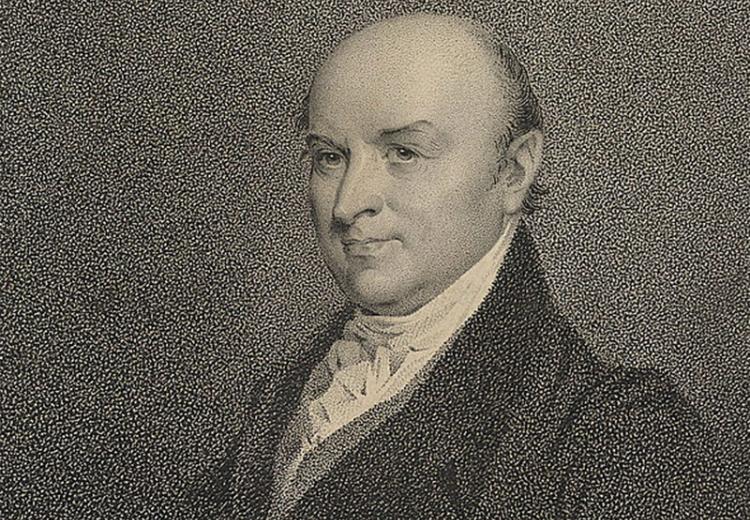Lesson 4: The Monroe Doctrine: Whose Doctrine Was It?

John Quincy Adams played a crucial role in formulating the Monroe Doctrine when he was Monroe's Secretary of State.
In its entry for The Monroe Doctrine (1823), Information USA, an exhibit of the website of the U.S. Department of State, a link from EDSITEment resource Internet Public Library, states:
"In Monroe's message to Congress on December 2, 1823, he delivered what we have always called the Monroe Doctrine, although in truth it should have been called the Adams Doctrine."
The writer expresses the opinion that the Monroe Doctrine should have been named after John Quincy Adams to honor his role in its formulation. There is also evidence to indicate that former President Thomas Jefferson strongly influenced President Monroe. Perhaps it should be called the Jefferson Doctrine. Or perhaps the document should have more than one name in its title. In reality, most important government policies such as the Monroe Doctrine are collaborations. However, to hypothesize about the relative contributions of Monroe, Adams, and Jefferson is an interesting exercise requiring an understanding of U.S. diplomacy. There is no "smoking gun," no particular document directly specifying the contributions of one or the other to the Monroe Doctrine. Instead, students should get a sense of the beliefs and methods of each man by studying his role in American diplomatic history and his statements.
Guiding Questions
In what ways did John Quincy Adams and Thomas Jefferson contribute to the formulation of the Monroe Doctrine?
Learning Objectives
List contributions of James Monroe, John Quincy Adams, and Thomas Jefferson to U.S. diplomacy.
Cite specific evidence to show the likely contributions of John Quincy Adams and Thomas Jefferson in the formulation of the Monroe Doctrine.
